How food, clothing and homeware bills are likely to rise
- Published
Shoppers will need to keep a close eye on how much they are spending
The British are a nation of shoppers; as Napoleon might nearly have said. And when shopping, we have a taste for the foreign.
Whether that be smartphones, bookshelves from Ikea, cheap clothes from Primark, or even a Ford Focus, most of what we buy is made abroad.
In fact we are a nation of importers.
Even if the pound regains some of its value, currency experts expect it to remain at least 10% below where it was on 23 June, in the long term.
So imported goods are about to get pricier. The only question is when - and by how much.

Food
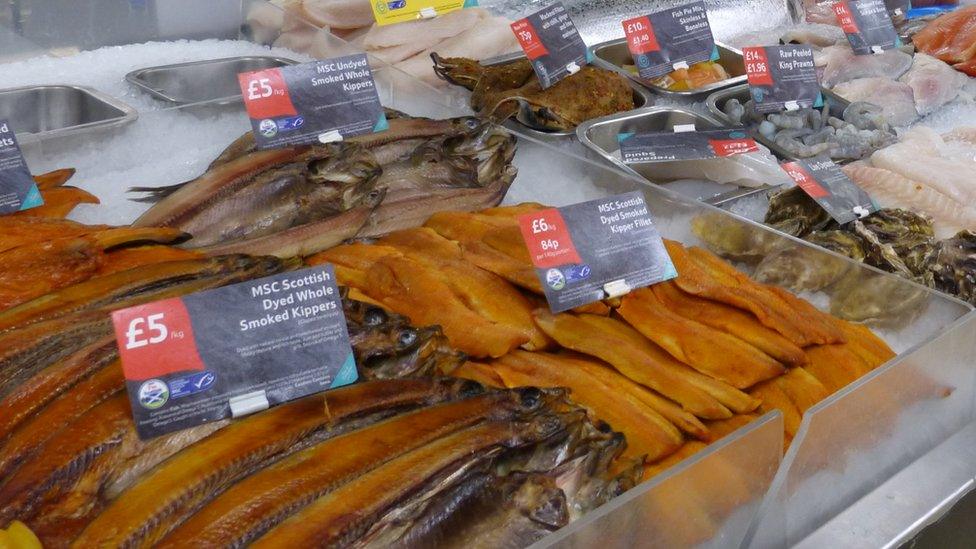
The UK imports at least 40% of its food, according to government figures.
Sainsbury's imports 50% of what it sells, for example, with a third of it coming from the EU.
If you've never clocked the scale of imports, look at Tesco's apple aisle: You will find more apples from Argentina, Chile, New Zealand, Holland, South Africa and France than from Britain. Its top-of- the-range potatoes come from Israel.
Eventually these will all cost more - along with fish, salad ingredients, New Zealand lamb, wine, beer and even tea.
In the short term all the big retailers have hedged against currency risk - in effect they've insured themselves against a fall in the pound - but these hedges will start to unwind next year.
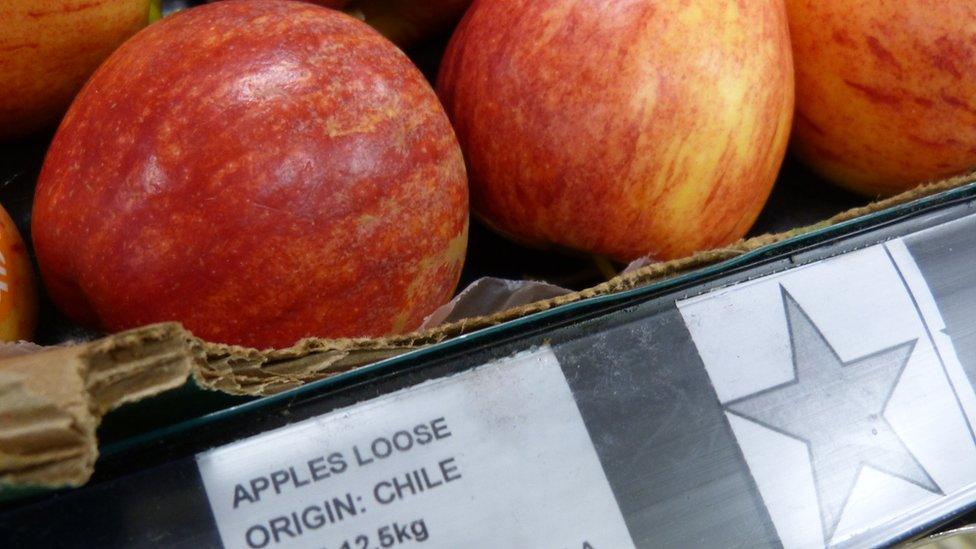
Production costs
Some retailers may try to absorb the extra cost, by cutting their profits.
"It is not certain we will see inflationary pressures passed on to customers," says the boss of Sainsbury's, Mike Coupe.
But retailers' profit margins are so thin, this may not be possible, according to Andrew Stevens, of Verdict Research.
"In the face of inevitable cost inflation, the grocers now have very little option but to raise prices for consumers," he says in a research note, external.
In the long run there may be further pressure on prices, according to what sort of trade deal is eventually negotiated with the EU. Any reduction in subsidies for British farmers, as a result of leaving the Common Agricultural Policy, could also push prices up.
And what about the EU migrants who pick our home-grown fruit and vegetables on low wages?
"Without the freedom of movement, the cost of producing food in the UK will come under further upward pressure," says Andrew Stevens.

Clothing and footwear
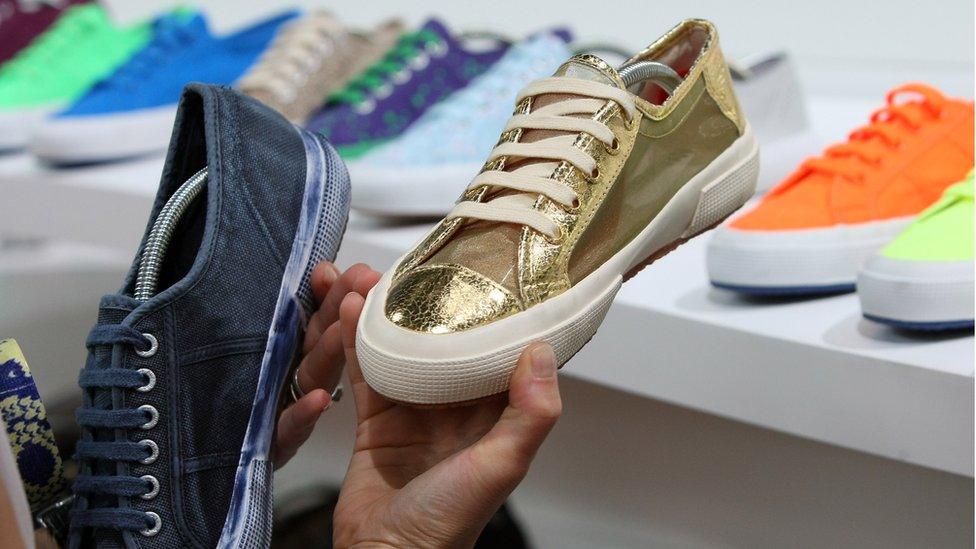
The fashion industry is even more dependent on imports than food retailers.
Those cheap T-shirts from Primark, or that party outfit from New Look, will probably come from South East Asia, Bangladesh, Sri Lanka or Turkey. They are usually priced in US dollars.
Marks and Spencer says virtually all of its clothing and homeware comes from outside the EU.
For that reason it has hedged its currency exchange up to 18 months in advance, meaning it could be Christmas 2017 before it comes under pressure to raise prices.
Steve Rowe, the chief executive, has even promised to lower prices on clothing and homeware, as part of the company's recovery plan.
But Kate Ormrod, who analyses clothing and footwear for Verdict, believes some shops will have to increase prices, external as soon as next summer.
"Few clothing players will be able to fully absorb increased costs, or risk weakening margins, resulting in price hikes for consumers," she says.
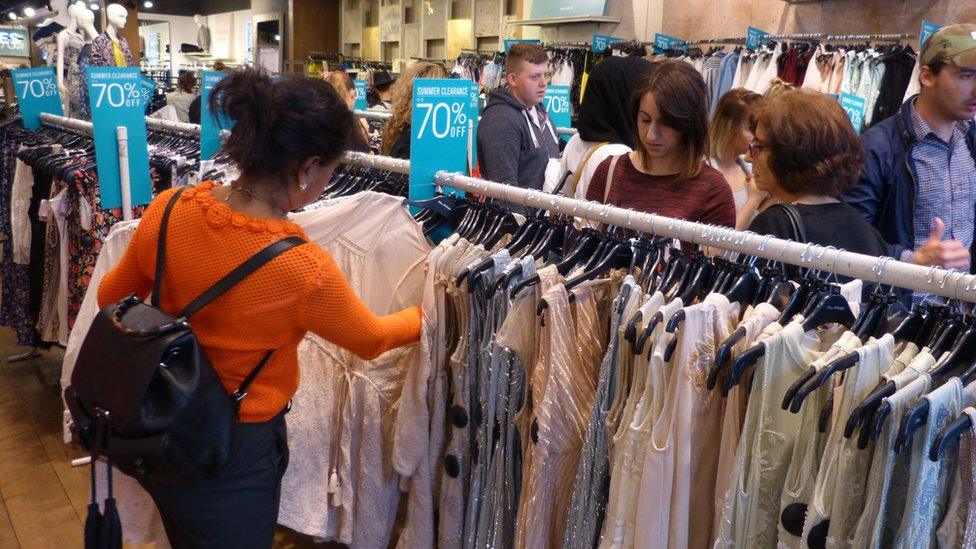
'Canny decision'
Lord Wolfson, the boss of Next, has said the company is 60% hedged against dollars and euros, up to the spring and summer collections of 2017. That raises the possibility of price rises in less than a year.
The company also points out that when the price of cotton rocketed in 2011, most fashion stores passed the increases straight on to customers.
That is a heavy hint that they will do likewise this time round.
However, not all retailers are exposed in the same way.
The online company ASOS pays for 80% of its clothing in pounds, suggesting it may be able to maintain its UK prices. Right now that looks like a canny decision.

Homeware, DIY, electricals
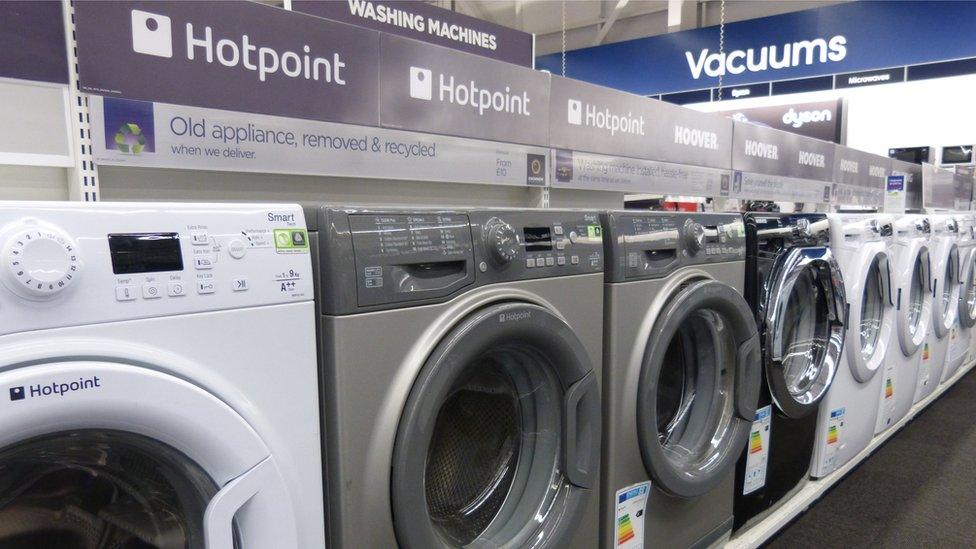
The US computer maker Dell has already raised prices by 10% to its UK retailers this month, and the Chinese smartphone company OnePlus has put some prices up by 6.5%.
John Lewis, which imports two-thirds of what it sells, says it too will be under pressure to raise prices.
It has hedged its currency transactions until the end of next year, but after that may find it hard to hold prices down.
"The pound is a big issue for us next year. It will have an effect," says Andy Street, the store's managing director.
"If inflation gets into the value chain and into prices, it will feed through."
Look at all those Bosch, Miele, and Samsung washing machines in John Lewis's kitchen department, and you see what he means. Only in September, when Ebac washing machines go on sale, will you be able to buy one that's made in the UK.
Verdict analyst Matthew Rubin believes, external the prices of such items will rise next year.
"Furniture, floor coverings and large electricals have the most to fear," he says.

Motoring
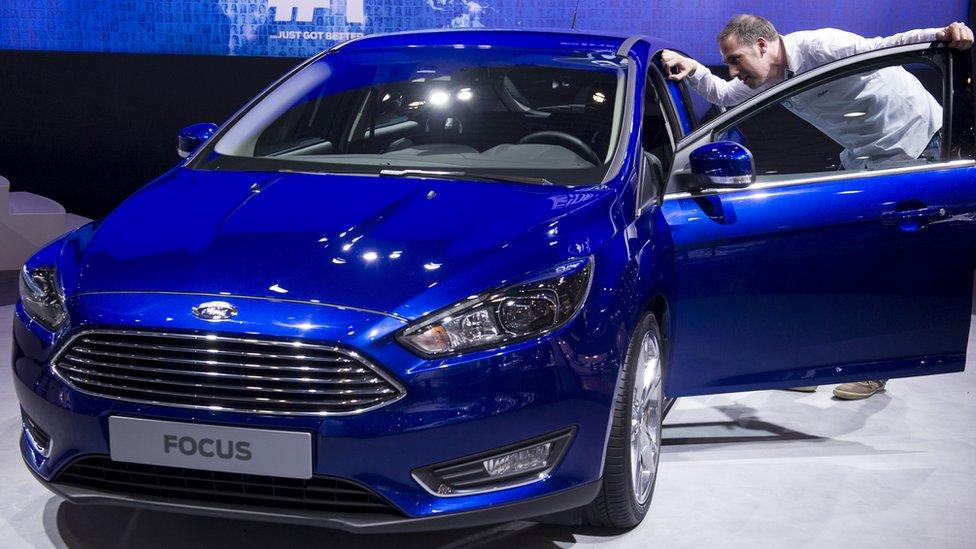
Since oil is priced in dollars, it is likely that fuel prices will rise as currency hedges unwind.
Assuming oil prices themselves do not fall, that is.
However the cost of oil only makes up around a third of the cost of a litre of petrol, so the currency effect will be small.
Meanwhile 70% of the cars we buy are imported, according to the Society of Motor Manufacturers and Traders (SMMT).
But the structure of pricing is complex. Manufacturers have greater flexibility over their margins than shops on the High Street, and they usually set prices according to competition in the local market.
In theory, buying a British-made car might be cheaper, but most of these use foreign suppliers, increasing the cost of production even in the UK.
In fact nearly 60% of components used to make cars in the UK are bought from abroad.
At the least, car prices are unlikely to fall.
- Published6 July 2016

- Published14 July 2016
